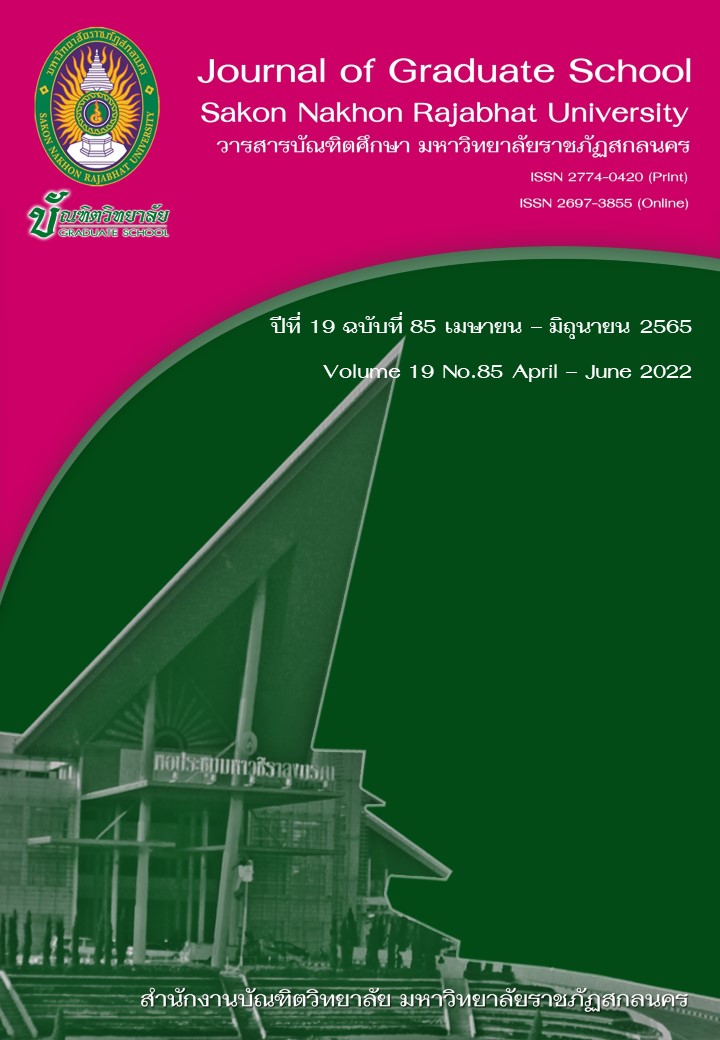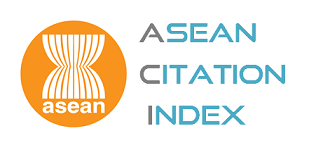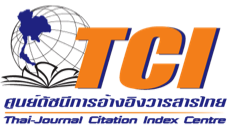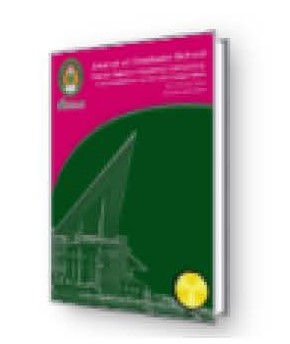การใช้หลักสูตรภาษาอังกฤษแบบเข้มข้นเพื่อเตรียมความพร้อมเข้าสู่การสอบ NPU Exit-Exam
Keywords:
intensive course, English skillsAbstract
The purposes of this research were to examine the effect of implementing an intensive English course for NPU Exit-exam preparation and analyze the students’ needs for an intensive English course. The sample group, obtained through cluster sampling, consisted of final-year vocational certificate students from the Faculty of Agriculture and Technology, Faculty of Industrial and Technology of Thatphanom College, Nawa College, and Srisongkram Industrial Technology College Nakhon Phanom University. The design of this research was a static group comparison design with 264 students in the experimental group and 262 students in the control group who did not take the course exam preparation. The research instruments included an intensive English course for NPU Exit-exam preparation with ten lessons and a survey questionnaire on students’ needs for an intensive English course for NPU Exit-exam preparation. The experiment lasted for a three-hour session each week for ten weeks or 30 hours in total. The mean, percentage, standard deviation, and t-test for Independent Samples were employed to analyze the data. The findings of this research were as follows: 1. The experimental group students passed the NPU Exit-Exam at a rate of 20.08 percent, which was higher than the control group students’ rate of 3.82 percent. The mean score of the experimental group and the control group students were 38.37 and 30.66, respectively. The experimental group’s mean score was higher than the control group’s at the .01 level of significance when the differences in mean scores were tested. 2. The students’ needs level towards the intensive English course for NPU Exit-exam preparation was at the highest level with a mean score of 4.51.
References
กองนโยบายและแผน สำนักงานอธิการบดี มหาวิทยาลัยนครพนม. (2560). แผนกลยุทธ์ 5 ปี (พ.ศ. 2560-2564) มหาวิทยาลัยนครพนม. นครพนม: มหาวิทยาลัยนครพนม.
ฝ่ายวิชาการและวิจัย คณะเกษตรและเทคโนโลยี มหาวิทยาลัยนครพนม. (2562). รายงานโครงการเตรียมความพร้อมในการทดสอบ ภาษาอังกฤษสำหรับนักศึกษา. นครพนม: คณะเกษตรและเทคโนโลยี มหาวิทยาลัยนครพนม.
มหาวิทยาลัยนครพนม. (2558). ประกาศมหาวิทยาลัยนครพนมเรื่อง การสอบ NPU Exit-exam. นครพนม: มหาวิทยาลัยนครพนม.
สถาบันภาษา มหาวิทยาลัยนครพนม. (2561). สรปุผลคะแนน สอบ NPU English Exit - Exam ภาพรวมมหาวิทยาลัยนครพนม. นครพนม: สถาบันภาษา มหาวิทยาลัยนครพนม.
สำนักงานคณะกรรมการการอุดมศึกษา. (2559). ประกาศคณะกรรมการการอุดมศึกษา นโยบายการยกระดับมาตรฐานภาษาอังกฤษในสถาบันอุดมศึกษา. กรุงเทพฯ: สำนักงานคณะกรรมการการอุดมศึกษา.
เสาวณี ทับเพชร. (2559). การพัฒนาระบบการเรียนการสอนเชิงเร่งรัดเพื่อสร้างแรงจูงใจในการเรียนรู้ภาษาอังกฤษธุรกิจสำหรับนักศึกษาปริญญาตรี. กรุงเทพฯ: จุฬาลงกรณ์มหาวิทยาลัย.
Carington, L. (2010). The Impact of Course Scheduling on Student Success in Intermediate Accounting. Sam Houstan state University 2010 IABR & ITLC Conference proceedings, Orlando, FL, USA.
Daniel, E. L. (2000). A review of time- shortened courses across disciplines. College Student Journal. 34, 298-308.
Henbery, K. (1997). The impact of class schedule on student performance in a financial management course. Journal of Education for Business, 73(2), 114.
Jareonsettasin, T. (2017). Ministry of Education. Retrieved from: http://www.moe.go.th/moe/th/news/detail.php NewsID=48458&Key=news2. February 23rd, 2019.
Laila, A. N. (2013). Intensive English for Academic Purpose Program (IEAP): a Proposal for Effective English Language Learning Program for EFL Students in English Education Department Iain Sunan Ampel Surabaya. Indonesia Journal of English Teaching, 1(2), 1-12.
Lare, D., Jablonski, A. M. & Salvattera, M. (2002). Block scheduling: is it cost effective?. The National association of Secondary School Principals, 86(630), 54-70.
Male S., Baillie, C., Hancock, P., Leggoe, J. & MacNish, C. (2017). Intensive mode teaching good practice report. STARS CONFERENCE (p. 108). Australia: UNISTARS.ORG.
Marchant, G. J., & Paulson, S. B. (2001). Differential school functioning in a block schedule: A comparison of academic profiles. High school journal, 84, 12-20.
Nasiri, E. & Shokrpour, N. (2012). Comparison of Intensive and Non-intensive English Course and Their Effects on the Student’s Performance in an EFL University Context. European Scientific Journal, 8(8), 127-137.
Piamsai, C. (2560). An Investigation of Thai Learners’ Needs of English Language Use for Intensive English Course Development. ภาษาปริทัศน์, 32, 63-97.
Rahman, O. (2018). Education. Retrieved from: http://www.daily-sun.com/printversion/details/298585/2018/03/30/Why-Is-It-Important-To-Learn-English-In-21st-Century. February 23rd, 2019.
Reddy, M. S. (2016). Importance of English Language in today’s World. International Journal of Academic Research, 3(4(2)), 179-184. Retrieved from: http://ijar.org.in/stuff/issues/v3-i4(2)/v3-i4(2)-a021.pdf. August 9th, 2019.
Scott, P. A., & Conrad, C. F.(1992). A critique of intensive courses and agenda for research. Higher Education: Handbook of Theory and Research, 8, 411-459.
Veal, W. R., & Flinders, D. J. (2001). How Block Scheduling Reform Effects Classroom Practice. High School Journal, 84(4), 21-31.
Vlachopoulos P., Janb K. S., & Lockyer L. (2019). A comparative study on the traditional and intensive delivery of an online course: design and facilitation recommendation. Research in Learning Technology, 27. Retrieved from: 10.25304/rlt.v27.2196.
Downloads
Published
How to Cite
Issue
Section
License
Copyright (c) 2022 Journal of Graduate School Sakon Nakhon Rajabhat University

This work is licensed under a Creative Commons Attribution-NonCommercial-NoDerivatives 4.0 International License.
บทความทุกบทความที่ตีพิมพ์ในวารสารบัณฑิตศึกษา มหาวิทยาลัยราชภัฏสกลนคร ถือว่าเป็นลิขสิทธิ์ของบัณฑิตวิทยาลัย มหาวิทยาลัยราชภัฏสกลนคร










